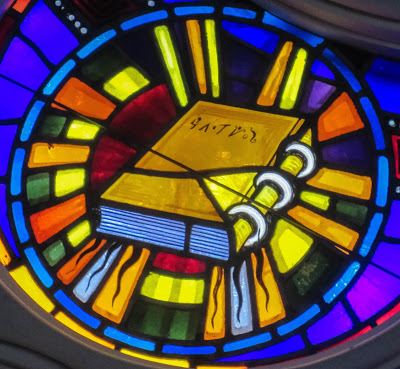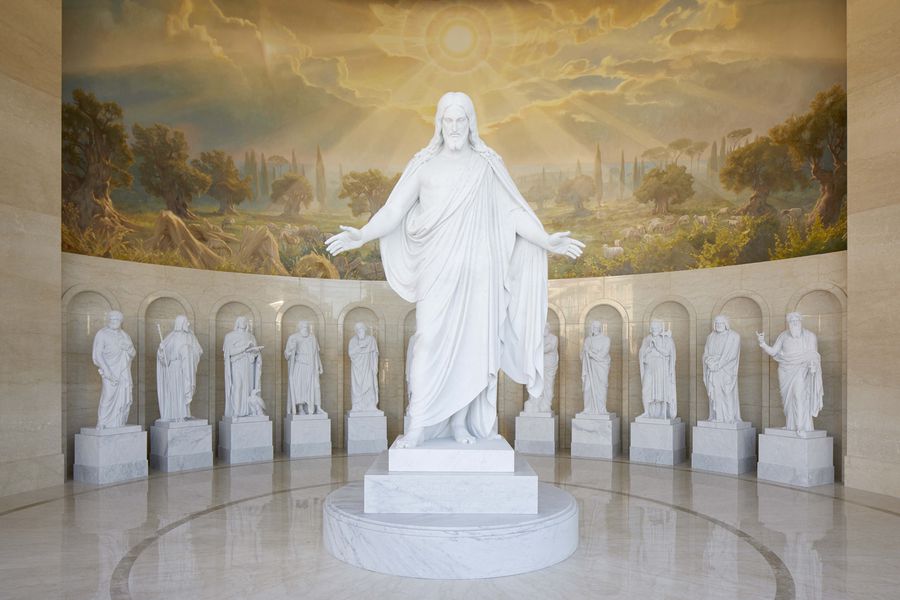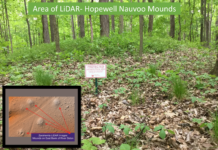The Church of Jesus Christ of Latter-day Saints, is the true gospel of Christ which is my testimony. I am thankful for this testimony and strive each day to serve the Lord in a righteous manner. I feel it is imperative that I and all others understand that Satan has a strong desire to infiltrate and do evil to our Church and to Christians world wide, and his goal is to infiltrate, not attack us from the outside.
No General Apostasy
“We now live in a time when the gospel of Jesus Christ has been restored. But unlike the Church in times past, The Church of Jesus Christ of Latter-day Saints will not be overcome by general apostasy. The scriptures teach that the Church will never again be destroyed (see Doctrine and Covenants 138:44; see also Daniel 2:44).
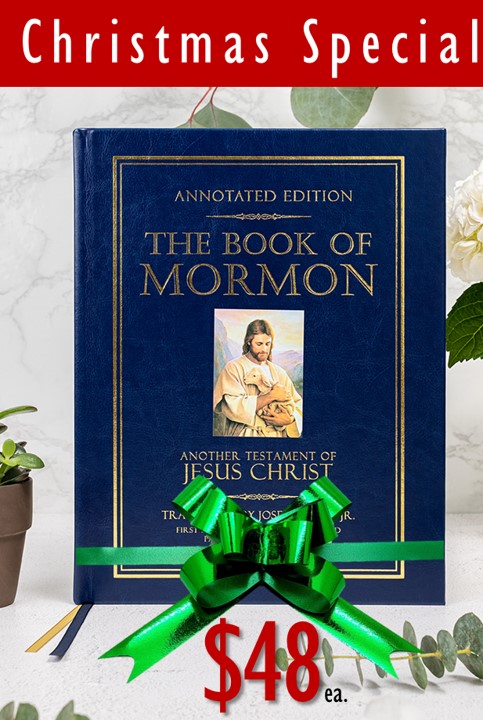
Although there will not be another general apostasy from the truth, we must each guard against personal apostasy by keeping covenants, obeying the commandments, following Church leaders, partaking of the sacrament, and constantly strengthening our testimonies through daily scripture study, prayer, and service. Gospel Topics Apostacy
Apostasy from Within
“It can be daunting to observe the proliferation of societal trends and worldly ideologies that conflict with the doctrines and beliefs that we embrace. Let us not lose faith. Rather, let us remember the words of the Prophet Joseph Smith penned in a letter to newspaper editor John Wentworth:
“The Standard of Truth has been erected; no unhallowed hand can stop the work from progressing; persecutions may rage, mobs may combine, armies may assemble, calumny may defame, but the truth of God will go forth boldly, nobly, and independent, till it has penetrated every continent, visited every clime, swept every country, and sounded in every ear, till the purposes of God shall be accomplished, and the Great Jehovah shall say the work is done” (Teachings of Presidents of the Church: Joseph Smith [2007], 444).
As in the days of the Nephites, the Church of Jesus Christ will never be overthrown by outside forces. Thus assured, we can confidently be about the business of strengthening the Church from within by means of personal righteousness and faithfulness, even as we reach out to share the gospel with others.” Viewpoint Church News 3/18/18
A Manifesto from Progressives?
I ask the question. In the Church of Jesus Christ of Latter-day Saints, do we need a new manifesto? Especially a “Radical Orthodox Manifesto“? Who is writing it and why do we need one? What does it say and how important is it to us? Why are we hearing more and more Liberal and Progressive thought with many church members and in the world today? What happened to Conservative principles and Traditional ideals and good old fashioned values?
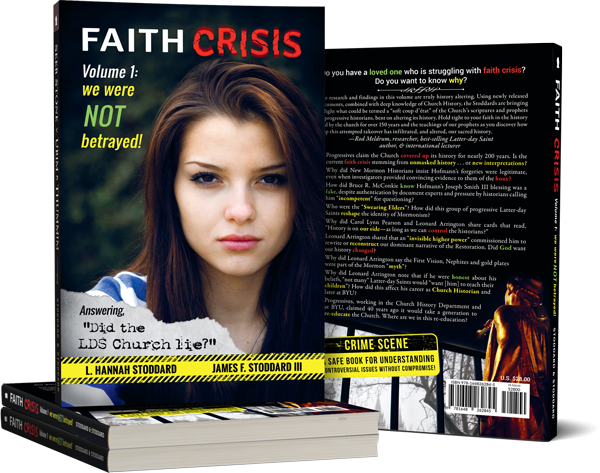
“Traditionalists believe that progressives are destined to inherit ignorance because they reject revelation. Progressives believe that traditionalists are mired in ignorance because they do not fully accept and embrace the philosophies and teachings of the learned. Regardless of which position one takes, nearly all agree—an unbridgeable gulf separates the two.” FAITH CRISIS: Did the LDS Church Lie? (Part 1) We Were NOT Betrayed! By James and Hannah Stoddard
Understanding Apologetics
Apologetics cannot prove that the Church is true, but it can show you answers that may help you in knowing the Church is true, especially through personal revelation. Our group called FIRM [Foundation for Indigenous Research and Mormonism], along with FAIR, Book of Mormon Central, The Interpreter, Meridian Magazine, More Good Foundation etc., are similar organizations made up of great spiritual people who love the Lord and the Book of Mormon. All claim to have answers to many challenging or even difficult gospel questions that may encourage or assist people to better understand the truthfulness of The Church of Jesus Christ of Latter-day Saints. No Apologetic organization speaks in behalf of, or for the Church however. Doctrine in the Church only comes from the Prophet and Apostles who all organizations support.
The purpose of LDS Apologetics is to provide solid or well-reasoned information that makes sense in answering supposed church related difficult questions, so that a conclusive decision of the truth of the Gospel and Church can be determined by study and prayer through the Spirit.
President Russell M. Nelson in a talk titled, Hope of Israel said, “Learn for yourself—right now at your age—how to receive personal revelation. And nothing will make a bigger difference in your life than that!” “
There’s a new ‘Manifesto’ Circulating among Latter-day Saints, and it’s ‘Radical’
This article in the Salt Take tribune can be found here: The manifesto titled Radical Orthodoxy a Manifesto is here and you can see an interesting dialogue about it on an online chat called “StayLDS.com” here:
I quote below from the SL Tribune on who some of the signers of the manifesto are. In my opinion many of these people are very Liberal and Progressive. I believe in their freedom of choice, but not their stance with much of their politics, but I am confidant they love the Book of Mormon as much as I do. I just want you to become informed on the opinion of some of the Intellects and/or Professors in our church and at BYU
Progressive Ideals?
“Terryl and Fiona Givens, are listed among the manifesto signers and share their son [Nathaniel’s] vision. The two are known for their popular books on Mormon beliefs and for creative thinking about Latter-day Saint theology. “The American church is bipolar,” says Fiona Givens, “with histrionics on both sides and nobody in the middle. ”Terryl Givens, a senior research fellow at BYU’s Maxwell Institute and author of more than a dozen books, recently wrote an essay on abortion for Public Square Magazine. It chided “pro-choice” Latter-day Saints and generated lots of heated debate among the church’s intelligentsia. Others signers include Daniel Peterson, who was ousted from the Maxwell Institute (formerly the Foundation for Ancient Research in Mormon Studies) in 2012 after 23 years as editor of the Mormon Studies Review; Ralph Hancock, who has argued that professors at church-owned BYU have become too secular in their approach; Jacob Hess, a leading contributor to Public Square Magazine who has written on LGBTQ issues; Jennifer Roach, a therapist who has defended the church’s one-on-one bishop interviews; and Hanna Seariac, a BYU student who led a petition drive urging the Provo school to “emphasize Christ-centered education. ”Valerie Hudson, another signee, was delighted to embrace the document. “That is exactly the space we’ve tried to carve out with SquareTwo [an online journal] all these years,” exults Hudson, who teaches at The Bush School of Government and Public Service at Texas A&M University. “The statement sums up our mission, which is to build constructively and soundly off square one, the restored gospel of Jesus Christ.” SL Tribune. Other signatories are: Spencer Kraus, Neal Rappleye, Jeff Round, Gregory L. Smith, Stephen O. Smoot [Not Steven E. Smoot of our Heartland group], and Ben Spackman
The “manifesto” titled, Radical Orthodoxy a Manifesto says, “This polarization is driving members of the Church to spiritually dangerous extremes, tempting some Latter-day Saints to reduce fidelity to knee-jerk traditionalism and others to abandon fidelity for worldly philosophies.” I think good old traditionalism should be adhered to far more (90-10) than worldly philosophies. I am afraid that a 50/50 split with both has a better chance of making you a worldly philosophizer than keeping you as a wonderful traditionalist.
It reminds me of what Elder Packer said, “To you who may have lost your way, come back! We know how that can happen; we have walked that path of research and study. Come help us!—you with your scholarship and your training, you with your bright, intelligent minds, you with your experience and with your academic degrees.” The Mantle Is Far, Far Greater Than the Intellect Elder Boyd K. Packer
“This problem has affected some of those who have taught and have written about the history of the Church. These professors say of themselves that religious faith has little influence on Mormon scholars. They say this because, obviously, they are not simply Latter-day Saints but are also intellectuals trained, for the most part, in secular institutions. They would that some historians who are Latter-day Saints write history as they were taught in graduate school, rather than as Mormons.” The Mantle Is Far, Far Greater Than the Intellect Elder Boyd K. Packer
Editor’s Testimony
I testify Joseph Smith was and is a Prophet of the living God. Do we need others to say he was simply a good man who made mistakes, maybe dealt in the occult, was not perfect and some of his ideas are old fashioned and don’t necessarily apply to life today? As I wrote about a few months ago on Bias Confirmation and Richard Bushman, how do you feel when Brother Bushman says the Book of Mormon is “right” vs. someone who tells you they know the Book of Mormon is “true” and the most correct book on earth?. I go with the later. How do you feel when some scholar tries to bring Joseph Smith down a notch, so the scholar can uplift himself? I follow what Wilford Woodruff says below.
“I look upon Joseph Smith as the greatest prophet that ever breathed the breath of life, excepting Jesus Christ. Father Adam, as I have said, stands at the head; but Joseph Smith was reserved to lay the foundation of this great kingdom and dispensation of salvation to the whole human family in these last days, to build up Zion, to establish God’s Kingdom, and to prepare it for the coming of the Son of Man.” Wilford Woodruff, The Deseret Weekly, vol. 38, (Deseret News Company, 1889), 389.
Have you heard friends and family members say the Book of Mormon is a good book that teaches some good parables. I cringe when I hear that! I think, “Is that all you think this wonderful book is“? I witness the Book of Mormon is absolutely the word of God, and as Mormon said “And now, if there are faults they are the mistakes of men; wherefore, condemn not the things of God, that ye may be found spotless at the judgment-seat of Christ.” Title Page
I believe many Intellectuals and Scholars are seeking to ‘stay in the middle’ on controversial issues. They don’t want to be like a small minded Conservative nor like an aggressive Liberal. They try to cut out a new path or new pet theory so they have something different to share with their inner group. They ask questions in a liberal or scholarly way that confuses those of us of that are not “learned” men and women. They seemingly side with intellect or theory on controversial issues, but most of them also try to stay true to core church teachings, which I know is crucial. I believe their straddling the fence allows people to believe less in spiritual matters and more in theory or unknown details.

This “Radical Orthodoxy a Manifesto” was written by many that are far more intelligent than I am, who have all the learning of higher education. That’s not wrong or bad it just is! As I read through the many signers of this manifesto, I see a large percentage of those I know or who have read about, who believe very differently about the Book of Mormon Geography, Evolution, Creationism, Politics and Nationalism. I am not judging them as I am sure they are all people of faith and they love the Gospel as I do. I just think in their eyes, I am probably as Leonard Arrington says, a “Holy Ghoster”, which means a far right conservative, or a religious zealot or something like that. They also claim David O. McKay, Joseph Fielding Smith, and other spiritual men are “Holy Ghoster’s”. (See the Stoddard’s Books on Faith Crisis 1 and Faith Crisis 2)
Below I have broken down their new, Radical Orthodoxy a Manifesto into the three key words and define them below. This will help give you a better understanding of how I feel about their Manifesto.
Radical
a: very different from the usual or traditional: EXTREME
b: favoring extreme changes in existing views, habits, conditions, or institutions
c: associated with political views, practices, and policies of extreme change
d: advocating extreme measures to retain or restore a political state of affairs the radical right
Orthodoxy
a: the traditional beliefs of a religious group or political party:
b: authorized or generally accepted theory, doctrine, or practice.
Manifesto
a: a public declaration of policy and aims, especially one issued before an election by a political party or candidate.
b: a written statement of a person or group’s beliefs, aims, and policies, especially their political beliefs: (All definitions come from Merriam Webster and Dictionaries online.)
Peggy Stack says, “These “radical orthodox” believers want to be defined “by what we are for, not what we are against,” [Nathaniel] Givens says. “We see ourselves as kind of ‘third way centrists’ — faithful to The Church of Jesus Christ of Latter-day Saints, while interested in theological exploration.”
In my opinion this interest in theological exploration has a great chance to lead us away from faith and into the teachings of the world. Before young people get involved in deep theological discussions they should have a firm witness of the Savior and the Gospel.
Givens also says, “Many young believers feel the only options they have are to be rigidly dogmatic to the point of being fundamentalist or to reject the Church’s teachings in favor of progressive political doctrines and intellectualism. This statement encourages intellectual engagement with the Church of Jesus Christ in ways that are faithful and flexible instead of either rigidly dogmatic or heretical and doubting.” Public Square Magazine
If you showed on a line a Traditionalist on the Right vs a Progressivists on the Left, I would say life on the “Center Right” would be just perfect. You can’t stay in the middle. The further Center and Left you go, the more you go against solid values and closer to intellectual theory. That is my opinion and I know all don’t agree. I am just saying I find no need for the Manifesto here given. The church already teaches values and doctrines to live by. I think reading our scriptures and more deep study and prayer bring us the best answers.
There’s a new ‘manifesto’ circulating among Latter-day Saints, and it’s ‘radical’ By Salt Lake Tribune
Scholars are seeking ‘middle ground’ on orthodoxy that allows questions but remains true to core church teachings.

(Rick Bowmer | AP file photo) Angel Moroni statue sits atop the Salt Lake Temple in 2014. By Peggy Fletcher Stack | Dec. 5, 2020
For many, the word “manifesto” calls to mind “The Communist Manifesto,” a political pamphlet penned by Karl Marx and Frederick Engels in 1848.Closer to home, Latter-day Saints have their own history with a momentous manifesto, the 1890 edict that marked the beginning of the end of polygamy in the faith. Now, three Latter-day Saint bloggers have declared a new manifesto, and it has nothing to do with Marxism or multiple wives. Indeed, “Radical Orthodoxy: A Manifesto” is about theology and is staking a claim to the middle ground in Mormon intellectualism — neither extreme right nor left.
Radical orthodoxy “is radical because it promotes bold exploration beyond what is familiar, and therefore rejects the obstinateness of fundamentalism,” the declaration says. “It is willing to revisit many facets of our received paradigm in order to apply the revealed doctrines and principles of the gospel to the unique challenges of today. That includes — under the tutelage of modern prophets — a revolutionary reconsideration of traditions, paradigms, and applications of the gospel inherited from prior generations.” There was no single catalyst for this effort, just the observation that the online discussion of Mormonism is “slanted heavily toward progressivism,” says Nathaniel Givens, one of the three writers, while the “growing right-wing response to that has seemed too reactionary and too negative.” Givens, a data scientist and entrepreneur in Virginia, worked for more than a year on the manifesto’s wording with co-authors Jeffrey Thayne, who teaches at Brigham Young University-Idaho, and J. Max Wilson, who runs the LDS-oriented blog, Sixteen Small Stones.
These “radical orthodox” believers want to be defined “by what we are for, not what we are against,” Givens says. “We see ourselves as kind of ‘third way centrists’ — faithful to The Church of Jesus Christ of Latter-day Saints, while interested in theological exploration.”
They reached out to others who shared their perspective and assembled a veritable who’s who among conservative Latter-day Saint intellectuals.
Theirs is not a movement per se, Givens says, but the organizers hope their manifesto might serve “as a rallying point to spur conversations, new friendships and maybe new projects.”
The key is not to “pick a fight with anybody, but to find new things to talk about, and to emphasize positivity,” he says. “We are not interested in labeling apostates,” but rather standing “for truth.”
When they feel compelled to speak up for church principles, practices and prophets, Givens says, they hope their style will be “kind,” not “contentious.”
‘Three tentpoles’
(Photo courtesy of The Church of Jesus Christ of Latter-day Saints) The Christus and the biblical apostles in the Rome Italy Temple Visitors’ Center. Supplemental materials are linked on the Radical Orthodoxy website, including an article by Thayne, spelling out what he sees as the “tentpoles” of belief in the Utah-based faith — namely, its three theological proclamations titled “The Family,” “The Living Christ” and “The Restoration.”
“Our argument is that once you dismiss, critique, or undermine the core teachings found in [these documents], you’ve left the tent of radical orthodoxy (as we understand it),” Thayne writes. “For example, if someone argues that the Book of Mormon is a modern midrash, argues that no unique divine authority was given to Joseph Smith, questions the historical Jesus as the sole anchor of our salvation, celebrates gender transitions as compatible with the gospel, or promotes the expectation that same-sex couples will someday be sealed in the temple, they are no longer operating within the paradigm laid out by radical orthodoxy.”
Being silent in the face of such statements, Thayne says, “can be as damaging as the critiques themselves. Radical orthodoxy, we argue, requires a willingness to speak out in defense of the divine truths in these documents, when the occasion calls for it.” Because the family proclamation addresses gender roles and the eternal importance of marriage between a man and a woman — and fails to mention never-married, divorced, childless or LGBTQ members — it often has been embroiled in controversy and overlapped with political debate. To J. Daniel Crawford, a blogger on the By Common Consent website, the manifesto amounts to little more than “question whatever you want, so long as you agree with the Brethren in the end.”
Thayne has an answer for that — a “steel man” approach to pronouncements from top church leaders.
“A straw man treatment finds and attacks the weakest interpretations of an argument. A steel man strives to find the strongest interpretations of an argument,” he writes. “It requires that we be generous with the prophets, not immediately dismissing them because we don’t agree or don’t understand. It means striving to step into a worldview (even if only provisionally) where we both understand and can embrace their warnings.”
That does not mean that those who embrace radical orthodoxy agree with everything church President Russell M. Nelson or his colleagues and predecessors have said, Thayne explains. “We have a duty to ‘steel man’ their teachings before rushing to conclusion — to strive to see the world through their eyes before dismissing what they have to say.” Kathleen Flake, who teaches Mormon studies at the University of Virginia, has no issue with what the manifesto says. She just questions why it even exists.
“No one needs more ‘-ites,’ or divisiveness,” she says. “You don’t need the Book of Mormon to tell you that anymore. The wisdom of it is manifest everywhere today.”
Besides, Flake says, it is always “a little spiritually dangerous to set oneself up as a public defender of the faith, any faith, and even for the best of reasons.”
Gathering the like-minded
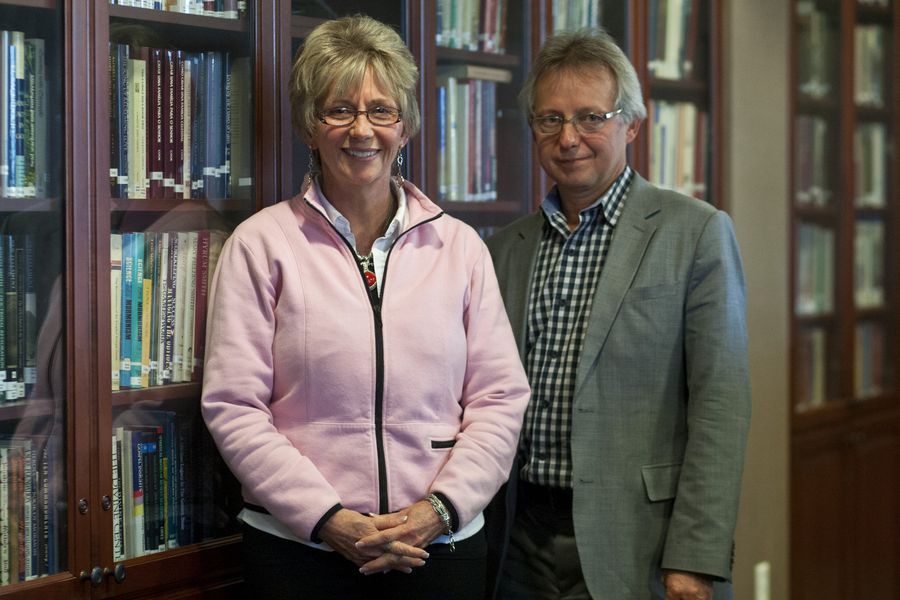
(Chris Detrick | Tribune file photo Authors Fiona Givens and Terryl Givens in 2012.Givens’ parents, Terryl and Fiona Givens, are listed among the manifesto signers and share their son’s vision. The two are known for their popular books on Mormon beliefs and for creative thinking about Latter-day Saint theology. “The American church is bipolar,” says Fiona Givens, “with histrionics on both sides and nobody in the middle. ”Terryl Givens, a senior research fellow at BYU’s Maxwell Institute and author of more than a dozen books, recently wrote an essay on abortion for Public Square Magazine. It chided “pro-choice” Latter-day Saints and generated lots of heated debate among the church’s intelligentsia. Others signers include Daniel Peterson, who was ousted from the Maxwell Institute (formerly the Foundation for Ancient Research in Mormon Studies) in 2012 after 23 years as editor of the Mormon Studies Review; Ralph Hancock, who has argued that professors at church-owned BYU have become too secular in their approach; Jacob Hess, a leading contributor to Public Square Magazine who has written on LGBTQ issues; Jennifer Roach, a therapist who has defended the church’s one-on-one bishop interviews; and Hanna Seariac, a BYU student who led a petition drive urging the Provo school to “emphasize Christ-centered education.” Valerie Hudson, another signee, was delighted to embrace the document.“ That is exactly the space we’ve tried to carve out with SquareTwo [an online journal] all these years,” exults Hudson, who teaches at The Bush School of Government and Public Service at Texas A&M University. “The statement sums up our mission, which is to build constructively and soundly off square one, the restored gospel of Jesus Christ.”
Hudson agrees that “those in the church who have intellectual or political or influence aspirations in our faith community too often feel that either 1) they must oppose certain core doctrines of the church, or 2) they must never, ever question anything about the church, including current teachings,” Hudson says. “Both of these standpoints are injurious.”
There is a path “between the Charybdis of nonorthodoxy and the Scylla of super-rigid, or Mosaic, orthodoxy,” she says, “and that others are successfully treading that path even now is helpful and hopeful for many members to know. ”Hudson eschews labels, noting only that she fully supports the the church’s positions on gender issues, including the Equal Rights Amendment, abortion and same-sex marriage, she says, “but I am coming from an explicitly, even ardently, feminist perspective when I do.”
A ‘pretty banal’ document
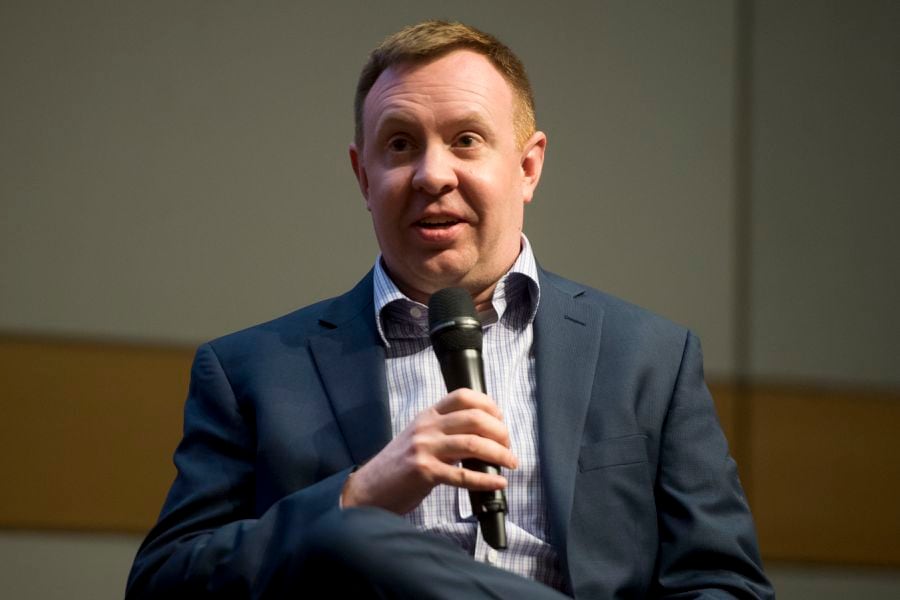
(Jeremy Harmon | Tribune file photo) Patrick Mason speaks while recording the 100th episode of the “Mormon Land” podcast on Oct. 4, 2019.In his 1981 satirical dictionary, “Saintspeak,” novelist Orson Scott Card used the term “radically orthodox Mormon” to describe a member who, among other values and behaviors, “believes without question only those doctrines that are clearly set forth in the standard works or that have been accepted as revelation by the uplifted hands of the Saints in General Conference.”
Givens and his manifesto co-authors found this usage after they had already adopted it. They say that Card’s take, though it was meant to be humorous, isn’t far off from what they are doing.
The term “radical orthodoxy” has been identified for more than a decade by a school of Protestant theology coined by John Milbank, an Anglican theologian in England.“ It doesn’t very neatly line up with the way [the Latter-day Saint authors] are using the words,” says Adam Miller, author of “Letters to a Young Mormon” and a philosophy professor at Collin College in McKinney, Texas.
In their manifesto, the drafters praise “fidelity to the leadership of the church,” he says, “rather than a set of philosophically worked-out ideas and creeds.”
There is nothing to disagree with in this manifesto, unless “you want to read specific ideas into it,” Miller says. “Overall, it’s pretty banal.” Patrick Mason, head of Mormon studies at Utah State University in Logan, agrees that “radical orthodoxy” is hardly unique to Latter-day Saint theology. It has been used by Catholic and Protestant writers.
Many religions feel “besieged on all sides,” Mason says. “And they all are open to new arguments and conversations, trying to balance tradition while retaining a sense of relevance for the 21st century.”
Like Miller, Mason says “radical orthodoxy looks different in these other traditions.”
Still, the USU scholar applauds the attempt to thread “a middle path between what they see as the errors of unbridled progressivism and recalcitrant fundamentalism.” It is a “goodwill effort to put a stake in the ground,” he says, and, could be especially beneficial “if they provide a hedge against the far right, including some websites and groups like #DezNat.” That’s short for Deseret Nation, a “very conservative subgroup of church members,” according to an article in The Daily Beast, who sometimes harass those they see as apostates.
The backers of the Radical Orthodoxy manifesto — who seem to have the ear of some church leaders — “care deeply about the Latter-day Saint community and fear any fracture,” Mason says. “They want to hold the center.”
The historian understands why others might be wary, given that some of the document’s devotees are well-known conservatives, he says. They worry that the manifesto might be “a Trojan horse for doubling down on traditionalist views on gender and sexuality.”
In the end, Mason is unsure what will come of the manifesto and the radical orthodoxy rhetoric.
“It might be a nothing-burger,” he says, “or the beginning of something big.”
“There’s a new ‘manifesto’ circulating among Latter-day Saints, and it’s ‘radical’ By Salt Lake Tribune
Progressive Thought
“Some historians write and speak as though the only ones to read or listen are mature, experienced historians. They write and speak to a very narrow audience. Unfortunately, many of the things they tell one another are not uplifting, go far beyond the audience they may have intended, and destroy faith. What that historian did with the reputation of the President of the Church was not worth doing. He seemed determined to convince everyone that the prophet was a man. We knew that already. All of the prophets and all of the Apostles have been men. It would have been much more worthwhile for him to have convinced us that the man was a prophet, a fact quite as true as the fact that he was a man.” The Mantle Is Far, Far Greater Than the Intellect Elder Boyd K. Packer
I say to any member or intellect who tries to belittle the Church or Joseph Smith or who tries to intellectualize and promote Progressive thought, to remember the words of George Albert Smith. “There have been some who have belittled [Joseph Smith], but I would like to say that those who have done so will be forgotten and their remains will go back to mother earth, . . . and, the odor of their infamy will never die, while the glory and honor and majesty and courage and fidelity manifested by the Prophet Joseph Smith will attach to his name forever.” George Albert Smith, Conference Report, April 1946, p. 182

https://latterdayorthodoxy.org/
“As disciples of Jesus Christ we are called to hold fast to the revealed truths of the Restored Gospel in a polarized and contentious world. This polarization is driving members of the Church to spiritually dangerous extremes, tempting some Latter-day Saints to reduce fidelity to knee-jerk traditionalism and others to abandon fidelity for worldly philosophies.
On the one hand, those who replace divine instruction with secular measures of progress risk relinquishing eternal truths for misguided worldly ideas. This can lead them to declare that the Church is behind the times on moral and social issues. On the other hand, those who focus solely on conserving what we have already received are prone to conflate human tradition with eternal truth. This can lead them to condemn any form of question-asking, faithful exploration, or subsequent revelation.
Like Odysseus sailing between Scylla and Charybdis, the path of discipleship takes us through a narrow course between two spiritual monsters: unbridled progressivism and obstinate fundamentalism. Navigating these perilous waters requires radical orthodoxy. Radical orthodoxy is an approach to the Restored Gospel that seeks to harmonize fidelity with exploration and cultural improvement.
Radical orthodoxy is orthodox because it promotes fierce fidelity to revealed truth, the institutional Church, and the Lord’s authorized representatives, and therefore rejects the excesses of progressivism. This includes meticulously heeding and unabashedly embracing the counsel and teachings of prophets and apostles regarding chastity and morality, the divinity of Christ, and the foundational claims of the Restoration—even when doing so runs contrary to popular, worldly views. Those who embrace radical orthodoxy strive to be valiant in their witness of restored truth.
Radical orthodoxy is radical because it promotes bold exploration beyond what is familiar, and therefore rejects the obstinateness of fundamentalism. It is willing to revisit many facets of our received paradigm in order to apply the revealed doctrines and principles of the Gospel to the unique challenges of today. That includes—under the tutelage of modern prophets—a revolutionary reconsideration of traditions, paradigms, and applications of the Gospel inherited from prior generations.
Radical orthodoxy cultivates humility and a recognition that far less is certain about many doctrinal matters than we often presume. Those who embrace radical orthodoxy are not afraid to ask questions, and they eschew dogmatism with regards to lesser controversies—even while they boldly defend faith, diligence, and conviction on matters of covenant living, revelation, doctrine, and authority. As we revisit the lines between tradition and revelation, we are careful not to dishonor the prophets of the past, undermine the projects and programs of the church, or ignore the moral witness and counsel of living prophets and apostles.
Radical Orthodoxy embraces the following virtues:
- Truth. We love and defend the Truth. We reject philosophies that suggest that there is no truth. We recognize, however, that without divine assistance, truth is very difficult to discern.
- Humility. We recognize our own limitations and we are willing to question our cultural and religious presumptions in light of both sound scholarship and ongoing revelation from God.
- Integrity. We do not believe in compartmentalizing the Gospel from our professional pursuits, politics, scholarship, social interactions, or hobbies.
- Fidelity. We are loyal to Jesus Christ and His Restored Church and submit to His divine authority by sustaining and following the local and general leaders of the Church.
- Seeking. We consider curiosity a virtue and desire to plumb the depths of the Gospel as well as of God’s Creation. Like Abraham, we seek to become “greater follower[s] of righteousness, and to possess a greater knowledge” than we currently possess (Abraham 1:2).
- Revelation. We affirm that the Church is guided by continuing revelation. We strive to allow the Holy Spirit to guide us in all aspects of our lives, including our professional or scholarly endeavours. We recognize, however, that only those with the proper authority and stewardship can declare revelation for the Church and the world.
- Faith. We know that Christ has already won the essential victories. We trust the Lord and His power to save us from sin and death. We also trust His ability to guide His Church and communicate His will to His appointed spokesmen, even when they are fallible.
- Hope. We are deliberately optimistic about the Church and its role in the world. We reject negative, cynical attitudes towards the Church, its leaders, and its teachings. We avoid nitpicking and murmuring.
- Charity. We love all of God’s children and we cultivate a soft-hearted temperament that rejects the spirit of contention towards those with different views, even while we vigorously defend the truth.
Radical orthodoxy is not a faction, nor a label intended to set forth boundaries for any particular group or organization. It is rather a rallying point, and invitation to embrace conviction and fidelity. It is also an invitation to reject fundamentalism and embrace the possibility of change, innovation, and progress in how we understand the Gospel. It is an occasion to reinforce our loyalties to the Resurrected Christ and the Church that bears His name, and to strive to be “lower lights” burning as an example to others who are also navigating the treacherous waters of modern intellectual discourse”. View Signatories
The Lord’s Way of Running the Church
Elder Henry B Eyring of the Church of Jesus Christ of Latter-day Saints discusses the remarkable candor and disagreement that accompany the eventual arriving at unanimity in Church councils.

